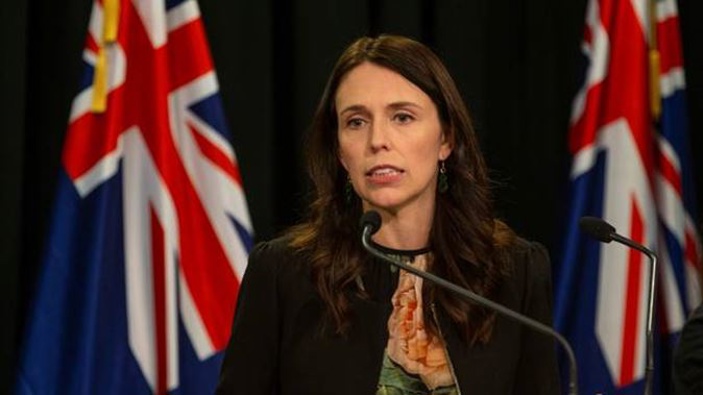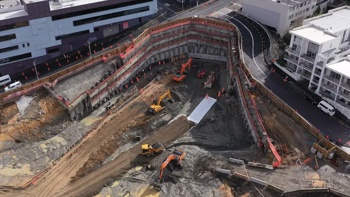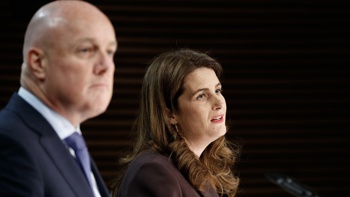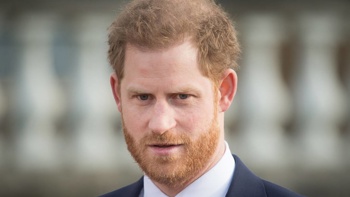Shutting schools prematurely could send students to their grandparents to be looked after, and elderly people are more susceptible to coronavirus, Prime Minister Jacinda Ardern says.
It would also take the likes of health workers out of the workforce, Ardern told Mike Hosking on Newstalk ZB today.
New Zealand has put up the no-entry sign to foreigners and placed strict new rules on social gatherings as the way of Kiwi life takes an extraordinary turn to prevent the spread of Covid-19.
Borders closed at midnight last night to non-residents - only citizens and residents are being permitted entry.
Ardern told Hosking that schools would close where there were positive tests to conduct contact tracing, but schools would not be closed generally without a widespread community transmission.
This was the model that had been adopted in Singapore and Taiwan, where transmission of Covid-19 had been slowed.
Some school principals have reportedly considered closing on Monday, but Ardern said the decision not to close schools generally so far was based on the best evidence.
Although it has taken historic measures to protect public health by closing the border, the Government has so far stopped short of ordering the kind of community lock-down and cancellation of non-essential services that has hit parts of Europe, the United States, China and other countries.
Asked by Hosking about a total lockdown nationwide, Ardern said the Government was looking out for spikes in transmission.
"If you want to be ahead of outbreaks, everyone needs to be prepared to work from home. Be prepared to cancel non-essential trips. Be prepared to reduce down that social contact. Do that now."
Ardern defended not shutting the borders earlier, saying that doing so with only 28 confirmed cases was an aggressive move.
She said cruise ships had been barred when asked about a cruise ship arrived yesterday.
"No one in the world has taken the measures that we have as early as we have. We have had police knocking on people's doors checking that they're self-isolating.
"When I saw people not following our expectations, we closed the border.
"Never in our history have we closed our borders, and I don't take that decision lightly. But we did it with 28 cases with no community transmission.
"We have been doing this ahead of the curve, and I make no apology for that."
She stood by not closing the border earlier.
"At no time in New Zealand's history has a power like this been used, and I recognise how extraordinary it is," Ardern said last night of the border closure.
"But we have to make decisions in the best interests of the health of those who live here, whether they be young or old, whether they be newly arrived or permanent."
The New Zealand move came as Prince Albert of Monaco tested positive for the virus.
The 62-year-old ruler – who is the second child of Princess Grace, formerly Grace Kelly, and Prince Rainier of Monaco – is being treated by doctors while working from his home office in the palace, a statement said. He is still in contact with members of his government, it added.
In England, 128 people have now died from the disease as the Government there limits weddings to five people or fewer including the bride and groom.
In the US, President Donald Trump has announced two drugs could be a "game changer" in treating coronavirus and will be made available "almost immediately" by the Food and Drug Administration (FDA).
During a briefing with the coronavirus taskforce at the White House, the President said the antimalarial drugs — hydroxychloroquine and Cloroquine— would soon be available for "prescribed use."
"It's been around for a long time, so we know if things don't go as planned, it's not going to kill anybody," he said. "We have to remove every barrier or a lot of barriers that were unnecessary and they've done that to get the rapid deployment of safe, effective treatments and we think we have some good answers.
"This could be a tremendous breakthrough."
In response to Health Minister David Clark not knowing a precise number of Covid-19 testing kits in New Zealand, Ardern told Mike Hosking there were 30,000 swabs as part of the testing capacity and 1500 tests could be done per day.
This was "significant" for a population the size of New Zealand.
She said there was high demand around the world for testing components.
Of the 28 people who have tested positive for Covid-19 in New Zealand, five were visitors who would not have been allowed in under the new border rules, it was confirmed last night.
Ardern acknowledged the border closure would further hurt the economy but allowing the virus to take hold in New Zealand would devastate it further.
The new border measures will be reviewed within a fortnight, but could remain in place for months if the global spread of Covid-19 shows no sign of slowing down.
Ardern said the rationale behind the border closure was underscored by the fact that all of the 28 confirmed cases, including the eight new cases yesterday, were related to overseas travel.
Schools around New Zealand have been put on notice due to positive results within their community.
And the hope is to keep it that way or to at least slow the transmissions into small, manageable waves that don't overwhelm the health system.
New Zealanders would still be allowed home but the doors were no longer open to tourists after 11.59pm, Ardern said.
The decision, made at a special Cabinet meeting, comes after reports of tourists deliberately flouting the self-isolation restrictions and rapidly worsening outbreaks overseas.
There was a serious threat that travellers would bring the virus here, Ardern said.
/arc-anglerfish-syd-prod-nzme.s3.amazonaws.com/public/QXZUN64SONBIBMJAZMP5Y22UJQ.jpg)
The move was aggressive and no other country with so few confirmed cases had done anything like it, but it was important to keep New Zealand as protected as possible, she said.
"The decision Cabinet has made is that a country devastated by Covid-19 is an economy devastated by Covid-19."
The Government can't give any certainty about how long the borders will be shut or gatherings banned as the global situation changes rapidly.
The border will stay open to New Zealand citizens, permanent residents as well as their partners and children but Ardern urged them to come home quickly because commercial flights were diminishing.
Qantas and Jetstar will both suspend all international flights from the end of the month.
The Government is considering mercy flights for any Kiwi who gets stuck overseas.
There would also be a small number of exemptions to the new measures for humanitarian reasons, vital health workers and citizens of Samoa and Tonga who need to travel to New Zealand for essential reasons.
And any tourist already in the air at the time of the shut-down would still be allowed in, but people won't be allowed to board flights after 11.59pm.
Arrivals would also be met with tougher controls at Customs and everyone's name and number will be taken, they'll be told to self-isolate and they could be checked on.
New Zealanders have also been told "do not travel" - the highest warning possible - as if they go overseas, they're at risk of contracting coronavirus.
The borders closing doesn't apply to freight and Ardern reassured New Zealanders their supermarket shelves would remain stocked, as long as workers had a chance to restock them.
Both supermarket chains have now introduced limits on some items.
"There is no need to panic-buy," Ardern said.
Schools around New Zealand have been put on notice after both parents and students have tested positive for coronavirus.
Parents of three Auckland schools have tested positive, meanwhile, two students were being tested for the virus: one from Hamilton and the other from south Auckland.
The Government was working with airlines to ensure medications continued to come into the country, as many arrive on passenger flights, Arden said.
She earlier quashed rumours of a nationwide shutdown when she was in Rotorua after taking an Air Force plane there from Wellington.
The ban on indoor gatherings of more than 100 people would temporarily change how New Zealanders met and bars and restaurants would not be the same, said Health Minister David Clark.
But it was justified by the threat to human health that we currently face, he said.
The Government will work with the hospitality sector over the next 24 to 36 hours to help it understand the implications and come up with possible solutions to ensure social distancing and contact tracing.
The measures are effective immediately and will be in place for some time - most likely for months.
Ignoring the ban could result in a fine of up to $4000 or 6 months' imprisonment under the Health Act 1956.
The new ban comes after outdoor events with 500 or more people were forbidden earlier in the week.
But just because an event didn't quite fit either criteria, that didn't mean people could ignore hygiene measures as gatherings were high-risk environments for the spread of coronavirus, Clark said.
"If in doubt - cancel."
All Anzac day services were also cancelled.
The most important thing people can do to slow the spread of coronavirus is to practise good hygiene and social distancing.
The heightened measures come as a new playbook - a report from the UK's Imperial College London - has defined the way governments respond to the pandemic.
Instead of trying to "flatten the curve", the new advice is to spread infection rates into smaller, more manageable waves.
New Zealand's best shot is to try to suppress the spread, through social distancing, self-isolation and cancelling mass gatherings, for as long as possible.
This will buy us time while we wait for a vaccine to see what strategies are most effective in other countries so we can try to mimic them here.
HOW YOU CAN SLOW THE SPREAD OF CORONAVIRUS:
2. Stay home if you're sick. If you have a fever, a cough, shortness of breath, sneezing, or a runny nose, don't go to work or school.
3. Self-isolate for 14 days if you have been overseas or if you have been in contact with someone who has Covid-19.
4. Be kind. Check in on your neighbours, especially older or vulnerable people. Make sure they have what they need to get through this.
Take your Radio, Podcasts and Music with you










